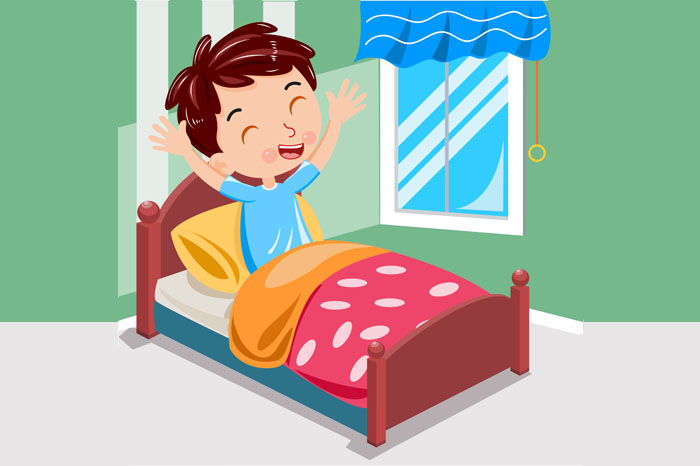As our children navigate the colourful corridors of childhood and adolescence, they encounter a powerful force shaping their decisions and identities: peer pressure. In the boisterous playgrounds and buzzing classrooms of India, peer pressure on students is a phenomenon as constant as the monsoon rain, shaping friendships, influencing choices, and sometimes posing significant challenges.
Understanding the Beast: What is Peer Pressure?
Peer pressure, simply put, is the influence exerted by a group or individual of similar age on another to conform to their behaviour or attitudes. This influence can be subtle, through casual suggestions and teasing, or overt, through direct pressure and even exclusion. In India, its manifestations can range from choosing specific brands of clothing to adopting slang and even engaging in risky behaviours like skipping school or trying tobacco.
The Grip on Students: The impact of peer pressure on students
Indian students, immersed in a demanding academic environment and a complex social milieu, are particularly susceptible to peer influence. This susceptibility is not just limited to urban or metropolitan areas but is equally prevalent in semi-urban and rural settings, reflecting the pervasive nature of peer pressure across various socio-economic backgrounds. The effects of peer pressure on students are immense.
- Academic Performance
- Self-Esteem and Identity
- Risky Behaviours and Choices
- Mental Health Concerns
Peer pressure can significantly distract students from their academic pursuits. The pressure to “fit in” or adhere to the group’s norms often leads students to make choices that are not in line with their academic goals. For instance, copying assignments or partaking in classroom pranks might seem trivial but can lead to a deeper disengagement from the learning process. This not only affects immediate academic performance but also hampers the development of essential skills like critical thinking and problem-solving.
For many Indian students, the path toward adulthood comes with a heavy burden – balancing personal dreams with the towering expectations of their society. This often results in a bittersweet tug-of-war between their burning ambitions and the pre-defined roles prescribed by family, community, and tradition.
Academic prowess sits at the pinnacle of Indian societal values, and failure to climb that ladder can trigger feelings of inadequacy and self-doubt. The pressure to conform, to fit seamlessly into established cultural norms, intensifies this burden. But India’s rich tapestry of diverse communities and traditions makes conformity itself a complex equation. Expectations vary across regions, castes, and religions, sometimes clashing with the aspirations nurtured within peer groups and individual families. This creates a labyrinth of conflicting expectations, amplifying the confusion and inner conflict young people face.
The desire to be accepted or perceived as ‘cool’ can drive students towards unhealthy and risky behaviours. In the Indian context, this could mean experimenting with substances like alcohol or tobacco. More urban-centric issues like cyberbullying or reckless driving are also manifestations of peer pressure. These behaviours not only pose immediate health risks but can also have legal and psychological ramifications.
Instead of blooms of confidence and joy, peer pressure cultivates thorns of worry and isolation, leading down a path of dimmed mental health. What makes matters worse is that these mental health issues are frequently compounded by the prevalent hesitation within numerous Indian communities to engage in open conversations about mental health, resulting in insufficient support for individuals grappling with these challenges.
From Pressure to Positivity: Guiding Your Child Towards Wise Choices
- Open Communication
- Building Resilience and Identity
- Positive Role Models and Influences
- Decision-Making and Critical Thinking
- Cultural and Value-Based Discussions
Fostering an environment where children feel comfortable sharing their experiences is crucial. This involves not just listening but also empathising with their challenges. Indian parents can sometimes be dismissive of the pressures faced by their children, considering them trivial compared to academic or career challenges, but acknowledging and addressing these concerns is vital.
Helping children develop a strong sense of identity and self-worth is key. This goes beyond mere praise; it involves helping them discover and nurture their strengths and passions. Encouraging children to engage in activities that resonate with their interests helps in building a resilient personality that is less likely to succumb to negative peer influence.
It is important to expose children to role models – within the family, community, or even public figures – who embody positive values and behaviours. In the Indian context, where extended family and community play a significant role, leveraging these networks to provide positive influences can be beneficial.
Teaching children to think critically and make informed decisions is a vital life skill. This involves discussing potential scenarios they may face and strategizing on how to handle them. Role-playing situations where they might encounter peer pressure can be an effective way to prepare them to respond assertively.
In a country as culturally diverse as India, it’s important to have open discussions about varying cultural norms and values. This helps children understand and respect diversity while also being firm in their personal and family values. Parents need to explain the rationale behind cultural practices and rules, making it easier for children to internalise these values.
Harnessing the Power of Positive Peer Pressure
Here are some examples of positive peer pressure for students.
- Leading by Example
- Encouraging Positive Friendships
- Empowering to Stand Up
Parents and educators must model the behaviours they wish to see in their children. This involves demonstrating kindness, respect, responsibility, and resilience in the face of adversity.
Guiding children towards building friendships with peers who share similar values and are a positive influence is crucial. This is particularly important in India, where the collective culture significantly influences individual behaviour.
Equipping children with the courage and skills to stand against negative peer pressure is essential. This involves teaching them to be assertive and to support others who might be vulnerable to peer pressure.
At EuroKids, we understand the crucial role that schools play in shaping responsible citizens. Our child-centric curriculum, coupled with a nurturing environment, equips young minds with the skills and confidence needed to navigate peer pressure and make positive choices. Through open communication, peer support, and a focus on personal growth, EuroKids helps children develop into independent thinkers who choose the right path, even when faced with pressure.
Parenting through peer pressure can be a challenging journey, but by fostering open communication, building resilience, and nurturing positive values, we can equip our children to navigate the social seas with confidence and make choices that lead to a happy and fulfilling future. Remember, a supportive hand, an open ear, and a commitment to fostering positive values can turn the tide, transforming peer pressure from a storm into a gentle breeze that carries them towards a brighter tomorrow.















